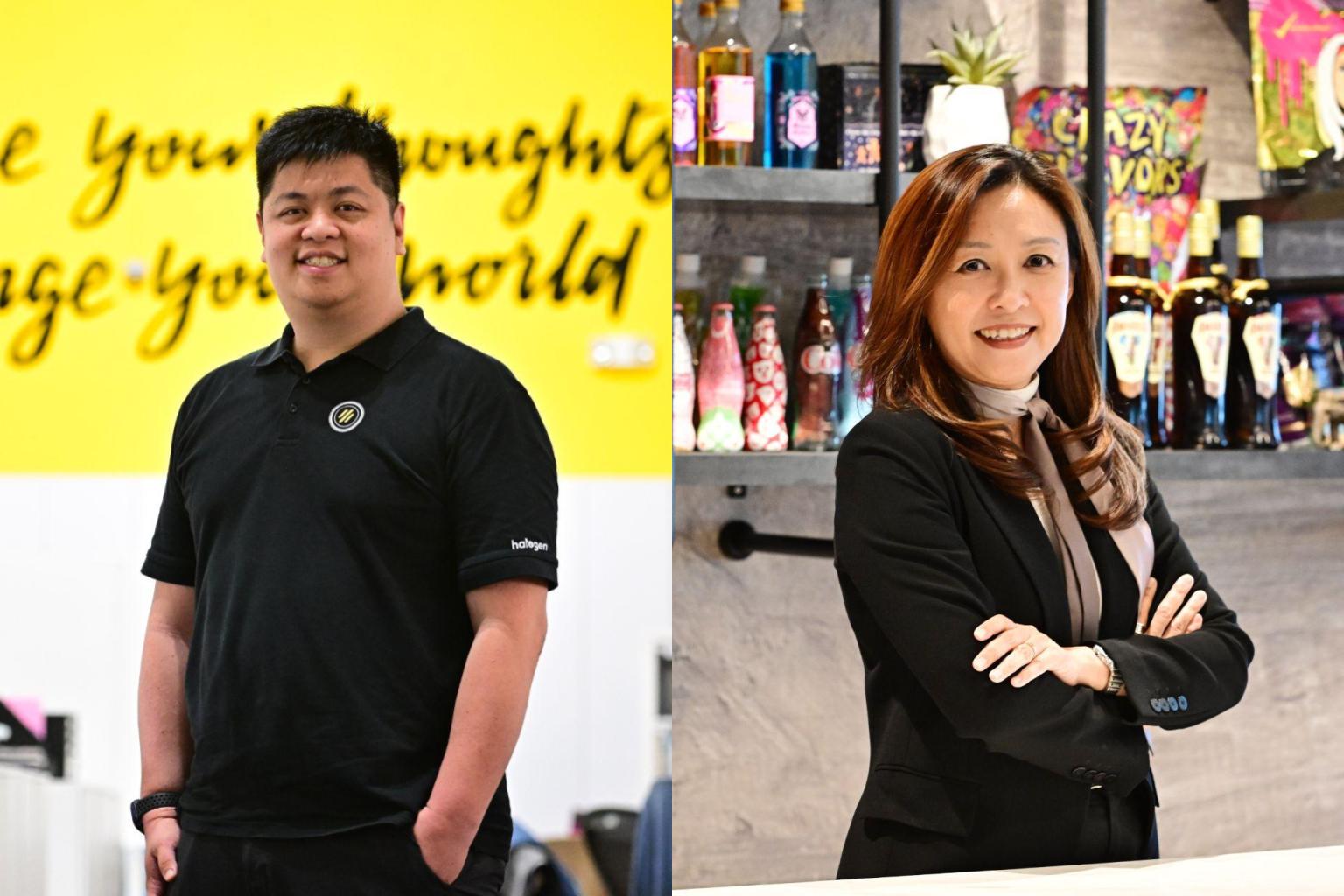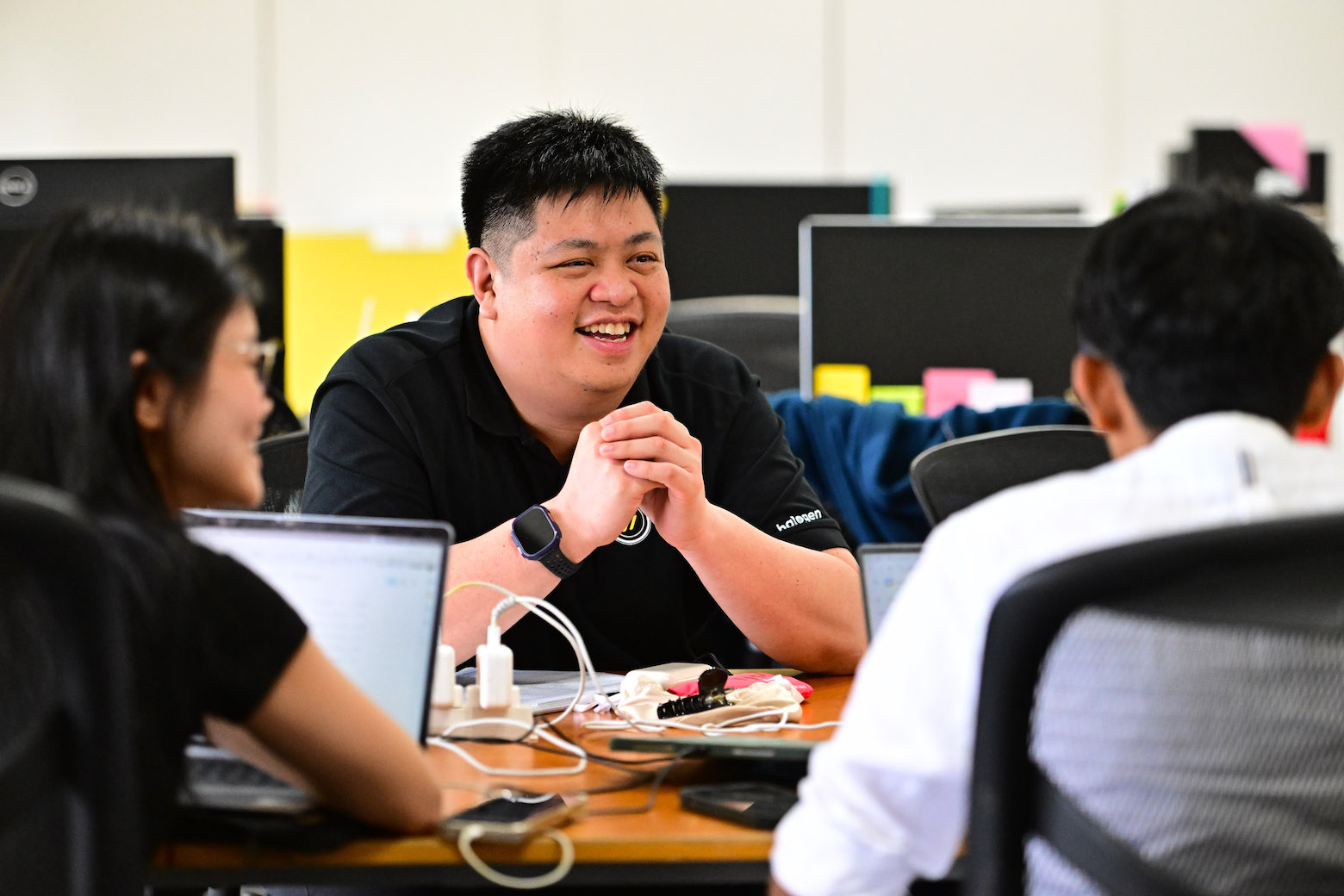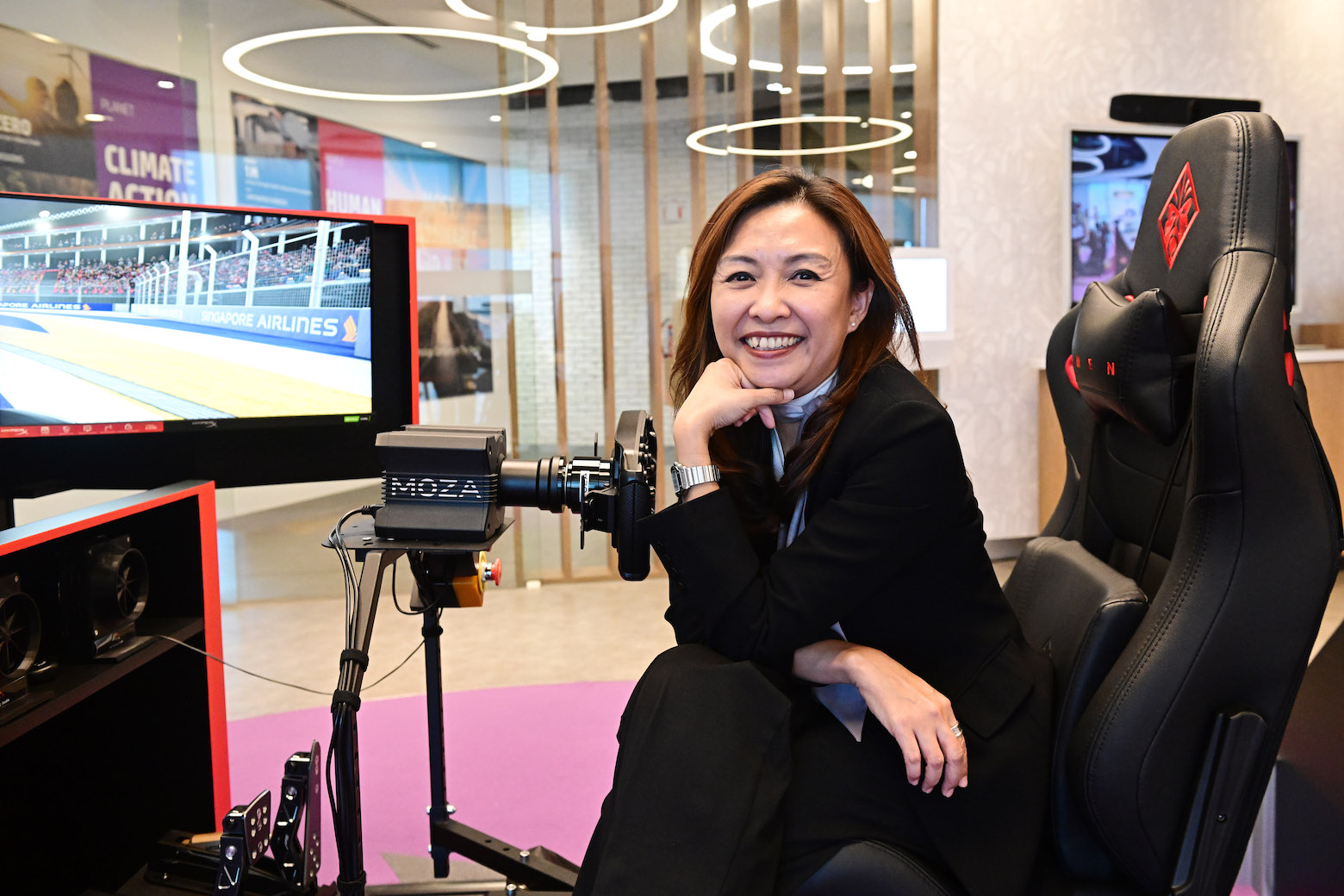BRANDED CONTENT
Yes, they can: How private uni’s progressive approach shaped grads’ can-do spirit
They share how different, progressive ways of learning shaped their thinking and resilience

Singapore Institute of Management alumni Mr James Goh and Ms Vivian Chua have risen to the top of their fields since graduating.
PHOTOS: THARM SOOK WAI
He stood poised over an unlikely learning tool: A real sheep’s brain.
Scalpel in hand, Mr James Goh proceeded to slice it open, learning how neuroconnections work in a way that no textbook or 3D model could match.
This wasn’t a typical day at medical school. Instead, it was a student-led biopsychology workshop at the Singapore Institute of Management (SIM).
Mr Goh, then a psychology undergraduate, had the blessings of his professor to import a sheep’s brain from the US after a 3D model failed to help.
This freedom to take ownership and “learn what you want to learn” was just what Mr Goh, now 34, was looking for in his tertiary education. The son of music teachers recalls how he was “very stressed, having to memorise and regurgitate everything” for his A levels in 2010.
His A-level scores were “not super fantastic, but also not bad”. But it limited his degree options at public universities.
His search for alternatives led him to the University at Buffalo (UB) programme at SIM. The local private university partners overseas tertiary institutions to offer their degree programmes to students in Singapore at its Clementi campus.
Hearing from SIM-UB alumni at the school’s open house, Mr Goh learnt how it offered “a very progressive, different way of learning” through its project-based approach and holistic modules, which include electives in music, philosophy and history.
“It’s something that I really wanted to try, to change up the way I (approach) education,” says Mr Goh, who enrolled in a three-year degree programme by the US university in 2011.
His ‘try everything’ mantra helps open new paths
An avid volunteer since secondary school, Mr Goh had his heart set on a psychology degree, but sought enrichment more than grades.
SIM-UB gave him that opportunity. “There's a lot of ownership over how you learn,” says Mr Goh. “In that environment, I learnt that you have to ask for things you want – and even if you think it’s not possible, try, because you never know.”

For example, a developmental psychology module required students to teach each other the curriculum. With this subject mastery, Mr Goh landed a part-time stint at a local music company in 2012 that uses similar concepts in childhood learning.
He also recalls an elective that called for his group to articulate how best to run a music business. They took the brief seriously, registering a talent management firm and performing at public events.
“From classes like that, I developed a willingness to experiment,” he says, sharing how he scored a research assistant role – typically reserved for postgraduate students – before graduating in 2014. He did so by emailing organisational psychology professors across Singapore.
By the numbers
- 140 programmes
offered by SIM, ranging from diplomas to master’s degrees
- 10 overseas universities
partner SIM Global Education, spanning reputable institutions in the UK, the US, Europe and Australia
- 200,000 alumni
across ages and life stages have graduated from SIM
This eventually led Mr Goh to be one of the first in his course to pursue a master’s in psychology at Singapore Management University in 2014.
Today, the father of a year-old son is chief experience officer at local youth-focused non-profit Halogen, where he leads the programme, operations and volunteer management teams that engage over 15,000 youths and 1,500 volunteers yearly.
True to his passion for working with people, Mr Goh holds numerous roles outside of work, such as district councillor for the Central Singapore Community Development Council, member of the Active Mobility Advisory Panel, and board member of charity organisation TomoWork.
At work or as a volunteer, the mindset inculcated at school drives Mr Goh to continuously explore ideas and opportunities.
“It’s become a mantra,” he says. “Even now, when I’m mentoring young people, I’m telling them: be willing to try. It’s only never done before, because no one tried.”
Continuous learning her ‘secret’ to corporate success
Another SIM graduate whose career has been impacted by her university years is Ms Vivian Chua, 50. Her story begins not in the classroom, but in the corporate world.
Despite qualifying for junior college in 1990, tight family finances led Ms Chua to pursue a diploma and enter the workforce early.
“Our parents worked very hard,” says Ms Chua, but they couldn’t afford to send all their children to university.
Her father was a taxi driver, and her mother, a housewife. She is the second of five children, growing up in a one-room rental flat.
“At that point, I was relieved that I could get to work, and contribute to the family (finances).”
The tech enthusiast, who built her own computer in secondary school, found work in IT sales. But in 1998, when tech giant HP sought to hire Ms Chua, her lack of a degree was a deal-breaker.
This spurred Ms Chua to enrol in a part-time marketing degree by Australia’s Royal Melbourne Institute of Technology (RMIT) a year later, joining a cohort of working adults. RMIT is an overseas partner institution of SIM.

“Those two years pushed me to the limit,” she says, pointing to a punishing work and study schedule, which included evening classes three times a week.
Even so, Ms Chua eagerly committed, sharing how the curriculum filled her knowledge gaps.
“It was very complete,” she says, explaining that modules in business finance, business law, and consumer behaviour were “very applicable to the work I do”.
“Many of the lecturers also had experienced backgrounds, and could share real-life examples,” says Ms Chua. “It made it easier for people like us to better understand and grasp concepts.”
Her efforts have since paid off. Once hindered by qualifications, she’s climbed the corporate ladder to a leadership role as head of Services and Solutions for Greater Asia at tech giant HP, managing teams across South-east Asia, Japan, Korea, Australia and New Zealand.
Many of the skills that helped Ms Chua thrive over the years are thanks to her university years.
“Workgroup exercises made me realise very early that there will be people who come very prepared, and totally unprepared. Then what do you do?” says Ms Chua.
“It teaches you to manage relationships. Not everybody comes equally equipped, but everybody comes with a different background and perspective, and you can harness that in the work you do together.
“I came out realising there’s a lot I can do. So I keep wanting to do more, learn more.”
This mindset has been a key factor in her 25-year trajectory at HP, from her initial role in business development, to her previous post as its managing director for Singapore.
“The desire to acquire knowledge spurred me to learn about different business models and products,” she says.
The mother of two sons, aged 15 and 18, encourages her subordinates and mentees to do the same.
“I’ll say: ‘Hey, you're in this role for too long. Go explore another.’ I try to elevate people to new roles and different experiences.”
She now shares her expertise through her positions with the SIM board of directors, and as council member and vice-chairman of the SME Centre at the Singapore Manufacturing Federation.
Ms Chua also actively supports female students in Stem (science, technology, engineering and mathematics) fields through HP’s mentorship programme with Nanyang Technological University.
“I'm where I am through education,” she quips. “I want to bring that same impact to how I give back.”
This year, the Singapore Institute of Management marks its 60th anniversary. Its social purpose: To enable, empower and equip learners with the tools to thrive, and skills to succeed.
- Click here for more information on SIM’s history and alumni experiences.
This is the first of two articles produced in partnership with the Singapore Institute of Management
Clarification note: An earlier version of this story stated that Mr James Goh earned a doctorate in organisational behaviour at Harvard Business School in 2019. The story has been amended as he did not fulfil the requirements to be awarded the degree.


